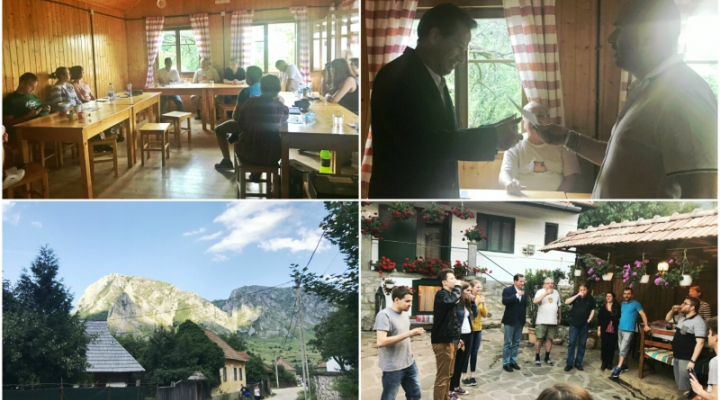Csaba Sógor about the political cleavages within the European Union at the Politeia summer camp
With the title „Our Central Europe”, the annual summer conference camp organized by the by the European Studies Department of Sapientia EMTE and the Political Science Department of ELTE was held this year with the partnership of the Hungarian Political Science Association in Romania (POLITEIA) from 6 to 9 July in Torockó/Rimetea.
The participants of the camp have discussed the idea of Central Europe and the issue of European identity during four days, together with invited experts and politicians. MEP Csaba Sógor was a guest speaker of the camp on Saturday, 8 July. He spoke about the cleavages within Eastern and Western Europe and presented the situation of Central European and Visegrád Group cooperation in the European Parliament.
The DAHR representative stated: ten years ago, when he started working at the European Parliament, an obvious North-South cleavage was present within the European Union. Nevertheless, in the last few years two bigger crises resulted in the appearance of new East-West cleavages, which first appeared in relation to the Ukrainian-Russian conflict and later deepened by the migration crisis.
Behind the lines everybody says that these cleavages should not be maintained, but nevertheless we can see in various issues, that it can be very difficult to find common ground - he explained. According to Csaba Sógor, these conflicts are also fed by EU decisions, like the efforts to reduce the so-called social dumping, which may push out Eastern and Central European enterprises from Western services markets through limitations on their competitive advantage due to cheaper labour costs.
Related to the cooperation within the Visegrád Group the Transylvanian MEP said: among European countries, the idea of Central Europe is best represented by the Visegrád countries. Though there are conflicts and cleavages between the V4 countries as well, everyone knows that a joint action is needed, for example in terms of discussions about the future of Europe. A strong Visegrád cooperation, which maintains a fruitful relationship with other countries of the region, could have a serious weight - he said. As for Romania, the MEP believes „Romania should realize that the path to the core Europe is through Central and Eastern Europe”, he said.











